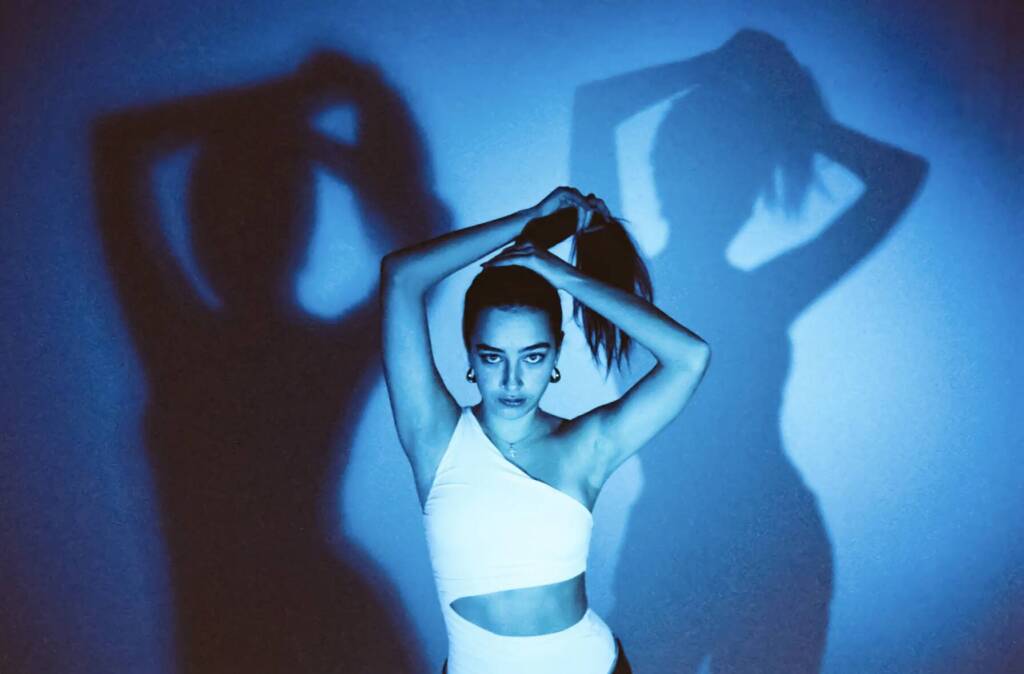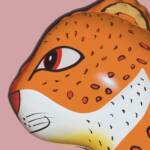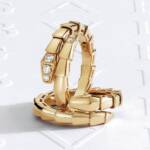IN CONVERSATION WITH THELMA
interview by MARIE-PAULINE CESARI
Introducing a trailblazer in the electronic music scene, THELMA, a Swiss-born, London-based producer, is set to make waves with her debut EP, “What We Live For,” slated for release on May 16 through Steel City Dance Discs. Leading the charge is the EP’s titular track, already available for listeners to dive into. THELMA’s musical journey is one of exploration, drawing from a diverse array of influences, including the pulsating beats of Detroit Electro. Her sound is defined by captivating melodies and daring compositions that challenge norms and expand artistic frontiers. Discover her exclusive interview for Numéro Netherlands Digital.

Hi Thelma, for our readers who haven’t had the chance to get to know you yet, could you introduce yourself
Hey! I’m a 23-year-old DJ and producer from Lausanne, Switzerland. Originally from Paris, I also spent time in Florida before moving to Switzerland and the UK. Before discovering DJing two years ago, I was studying for my masters in Documentary Film and Psychology. I’m someone who easily gets bored and loves diving into new creative projects. But when I started producing music, it just clicked for me, and I knew it was my calling.
How would you describe your music style in three words?
I’d say it’s nostalgic, moody, and driving. I aim to strike a balance between emotional depth and something that’ll get people moving on the dancefloor. That’s what I look for in the music I make and the tracks I play as a DJ.
Among your tracks, which one would you recommend as the perfect starting point for someone to discover your universe, and why?
I’d recommend starting with “18 Missed Calls.” It’s a blend of my older sound with where I’m heading musically. The rave stabs remind me of my earlier tracks like “Track ID” and “+1,” which really kicked off my career. But now, I’m more focused on creating music with more layers and depth. Looking back, I remember how I used to keep things simple, like just slapping on a kick and rumble sample for bass. Thankfully, I’ve come a long way since then!
Where does your passion for music come from, and when did you start playing?
I come from a musical background—my mom teaches singing, and my dad works with music software. I’ve been surrounded by music since I could talk, singing along with my dad playing chords on the piano. Even though I never formally studied music theory, melodies and lyrics always came naturally to me. When I discovered electronic music, it felt like I had found my place. Moving to London in 2021 only fueled my passion further. I joined a DJ society, and from there, I was hooked. It’s amazing how things took off once my early tracks gained traction on platforms like TikTok. I still pinch myself sometimes—I’m so grateful to do what I love as a job, and it still feels surreal.
Congratulations on your upcoming debut EP on SCDD, “What We Live For”! Can you tell us a bit about the inspiration behind the project and what listeners can expect from it?
Thank you! So, with this EP, I aimed to introduce my audience to a different facet of my sound—one they haven’t explored yet. While I often incorporate Detroit techno/electro and breakbeat into my sets, my releases have taken a different direction. DJ Mell G and Hermeth heavily influenced the sound I was going for. Personally, I found producing breakbeat more challenging than the standard 4×4 track, which posed some initial hurdles. Additionally, there’s a prevalent preference for the latter style in clubs. However, breakbeat, with its deviation from the norm, intrigued me, drawing me in. Once I honed in on the sound I envisioned, I knew it had to be part of this project. The goal was to juxtapose the upbeat techno tracks with darker breakbeat ones, creating a parallel between light and dark. This EP offers something for every listener.
Your lead single, also titled “What We Live For,” has just been released. What was the creative process like for this particular track, and what message or feeling were you aiming to convey?
When crafting a melody, it’s crucial that it resonates with me in a specific way. I’ll keep refining it until it evokes that particular feeling. “What We Live For” is nostalgic yet predominantly hopeful. It fills both me and the audience with energy whenever I play it, igniting excitement for the future. Music serves as a powerful tool for emotional expression, particularly for someone as emotionally attuned as myself. Consequently, I only produce tracks that hold personal significance, allowing that sentiment to guide the creative process. Of course, there are technical aspects involved, but I’ll spare you the intricacies!
You’ve had the chance to tour Australia and perform in cities like London, Paris, Dublin, and Belfast. What have been some standout moments from these experiences, and how do you think they’ve influenced your sound and style?
The shows that will forever hold a special place in my memory include Sub Club, Fabric, Terminal V, as well as my club performances in Adelaide & Newcastle, Australia. Any gig where I feel a genuine connection with the audience and the freedom to experiment without constraints is truly remarkable. I thrive when the audience is open to surprises and receptive to unfamiliar music. While breakbeat isn’t prevalent in the scene I’m part of, I relish the challenge of incorporating it into sets where people expect straight techno from me. The audiences in Adelaide and Newcastle were incredibly open-minded; I seamlessly transitioned from breaks to footwork and juke, then back to speed garage. Their enthusiastic response was incredible! However, Scotland holds a special place in my heart. The warmth of the crowds, their smiles, and reactions to unexpected tracks—it’s truly unparalleled.
Can you share any memorable moments or highlights from your time at the SCDD writing camp at ADE last October? How did collaborating with artists like Flansie, KETTAMA, DJ HEARTSTRING, and Brux impact your creative process?
During a break from our group project at one of the production rooms, I played a demo of “What We Live For” to get some feedback. While the main idea was there, I was struggling with the second drop. Evan (KETTAMA) happened to walk in and heard it playing. He asked me to send it to him, but I mentioned it wasn’t finished yet. His response was, “Yes it is. Just add some crashes and more hats in the second drop. The track’s done.” Inspired by his comment, I wrapped it up that evening and played it at the ADE pop up the next day. Without his encouragement, maybe it would have remained on my computer forever! This experience taught me the importance of finishing tracks and not overthinking it—never discarding anything. The writing camp provided numerous valuable lessons, with the key takeaway being that there’s no one “right” way to produce music. Everyone has their own approach, mainly based on trial and error and openness to change. Moreover, it reminded me that music production should be enjoyable! Working in groups helped alleviate perfectionist pressure and focus more on the process rather than the outcome.
Is there any artist you would love to collaborate or play with in the future, and why?
That’s a tough one. There are a few, but if I had to choose, it would definitely be VTSS. With over a decade in the scene, she’s experimented with various genres and sounds. I believe there’s much I could learn from her. Her sets introduced me to Latin club music, guaracha, baile funk—you name it. I admire her ability to keep music playful and diverse, which, in my opinion, is crucial. Plus, she’s a woman, which is the cherry on top!
As we are a fashion magazine, we’re curious about the role of fashion in your life as an artist. How do you see fashion intersecting with your music, performances, or overall aesthetic? Are there any styles or designers that inspire you, or ways in which fashion influences your creative expression?
Fashion has become increasingly important to me lately. Initially, when I was deep into learning production/DJing, I didn’t focus much on outfits, sticking to the all-black look during gigs (classic!). But now, with more time to experiment, I see it as integral to my persona. What you wear not only reflects who you are but also boosts your confidence on stage. Anything reminiscent of early 2000s fashion is a must for me. For warehouse raves, I go for the all-leather black ensemble—corset, choker, skirt, and knee-high boots. However, with summer and outdoor festivals approaching, the more vibrant and outrageous the outfit, the better. I’m glad to see a scene where women encourage each other to wear whatever makes them feel empowered. That’s what style is all about.





